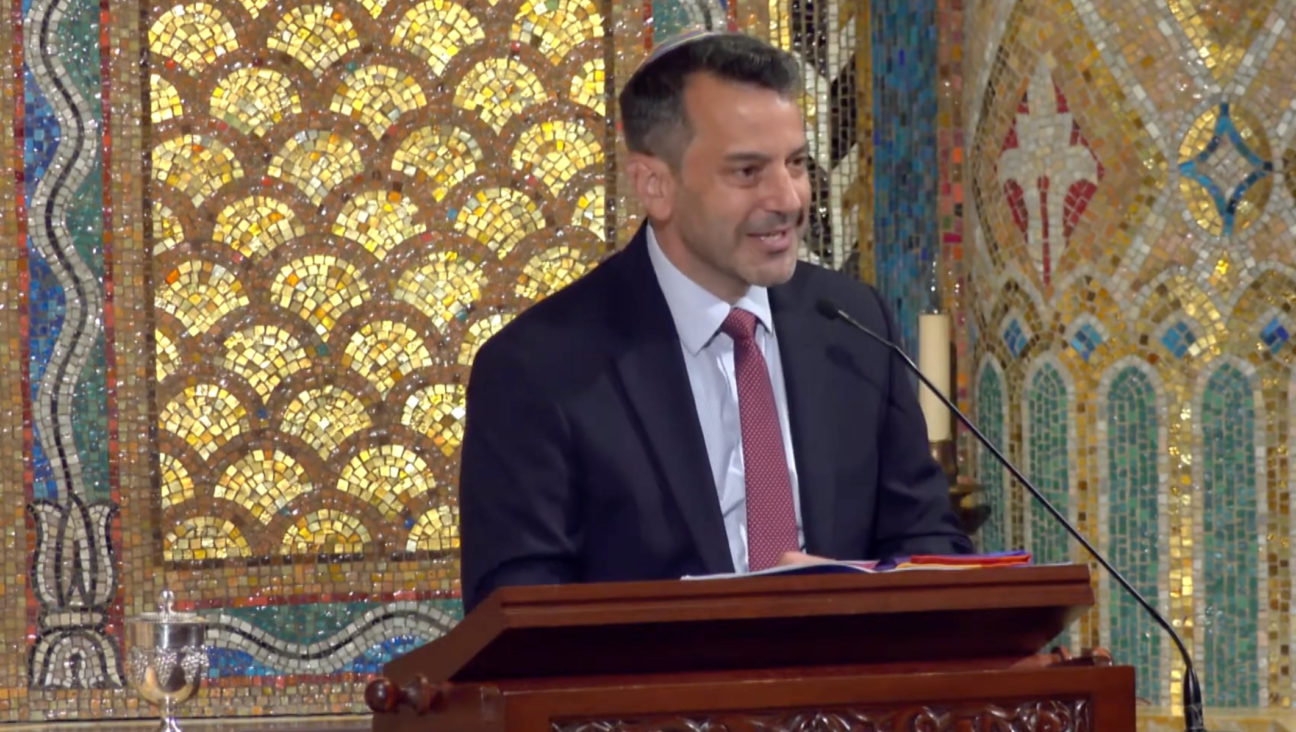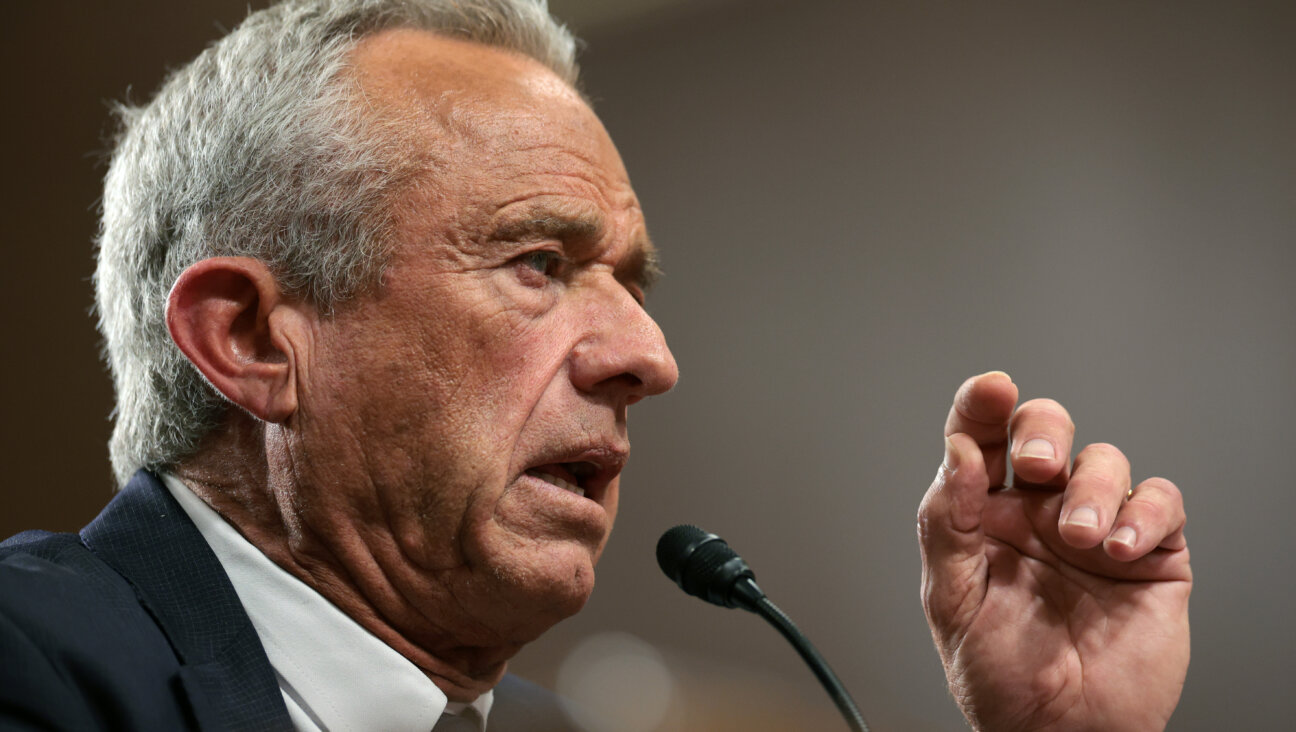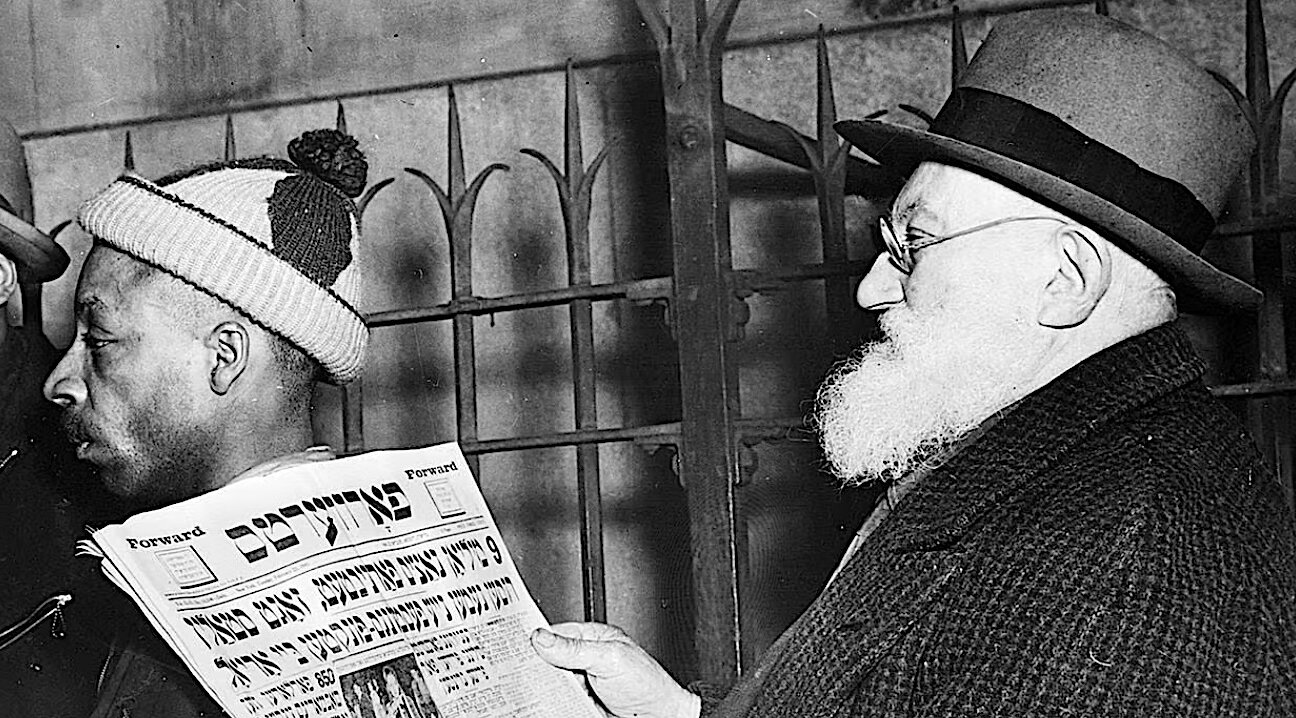What John Bolton’s Firing Means For Israel — And Bibi’s Reelection Chances

Israeli Prime Minister Benjamin Netanyahu shakes hands with White House National Security Adviser John Bolton as they meet on January 6, 2019 in Jerusalem, Israel. Image by Kobi Gideon/GPO via Getty Images
On Tuesday night in Israel, the major television stations broadcast what Prime Minister Benjamin Netanyahu promised would be a “dramatic announcement.”
The bigger drama, though, happened thousands of miles away. It overshadowed and undermined Netanyahu’s big moment.
Netanyahu promised in his speech that after what he predicted would be his election victory on Tuesday, Israel would annex West Bank settlements “in coordination with the United States.” He also highlighted his close ties with the White House and intimated that he had knowledge of the contents of President Trump’s peace plan.
But less than an hour later, Trump fired national security advisor John Bolton by tweet, leaving the position open for the third time in three years.
The firing — its timing and substance — underscored just how precarious it can be to rely on an erratic president with a trigger-happy Twitter finger.
Bolton was the Trump administration’s biggest proponent of maximum pressure on Iran, a tactic that Netanyahu and his security officials have endorsed, said Aaron David Miller, a senior fellow at the Carnegie Center for International Peace. “The last thing they want now is an easing of that pressure,” Miller said.
The firing of an administration official working in Israel’s stated interest couldn’t help but raise questions about the limits of what Trump will do for Netanyahu.
The two have been closely allied since 2017. The president exited the Iran nuclear deal, backed away from demanding a two-state solution, recognized Israel’s sovereignty over the Golan and its capital as Jerusalem and moved the American embassy there. He’s popular in Israel for all those things.
In return, the prime minister has understandably exalted the president, going so far as to name a Golan town “Trump Heights.”
Netanyahu has also used the relationship for his own political ends – using footage of him shaking hands with Trump in election posters and videos, and now promising American support for his annexation plan.
Many Israeli pundits and opposition politicians said in the Israeli press that Netanyahu’s Tuesday announcement was an election tactic. Miller agreed. “All this is is a grandstanding ploy to gain right-wing support and attract right-wing voters,” he said.
He added that Netanyahu’s first priority should he cobble together a coalition would not be annexation, but rather crafting a law giving him immunity from prosecution, given that corruption charges are expected to be filed later in the fall.
But Foundation for Middle East Peace president Lara Friedman said Netanyahu’s pledge should be taken seriously. “I don’t think he’s made any promise nearly as clear as this,” she said.
Nevertheless, a White House official said after Netanyahu’s announcement that there was no change in American policy against West Bank annexation.
Indeed, as the Bolton firing indicates, Netanyahu can’t always rely on Trump, despite the president’s pro-Israel staffers and inclinations. Netanyahu’s biggest obsession, going back to the 1990s, has been not the West Bank issue, but rather stopping Iran from developing nuclear weapons. He supported Trump backing out of a nuclear deal that he found fatally flawed – but Trump has also repeatedly offered, including on Monday, to meet with Iranian President Hassan Rouhani and discuss the issue in person.
Israeli security leaders are concerned that Trump will give away too much, or even just provide a PR boost to the regime like he did with North Korea and its dictator Kim Jong Un. Bolton was the staffer working hardest to make sure Trump and Rouhani didn’t meet at all, let alone cut a deal, Miller said.
Netanyahu surely wouldn’t be happy about such a meeting, but would likely keep quiet about it for fear of earning the president’s ire. Besides, Friedman said, she expected that should Netanyahu win, the White House would happily go along with him on annexation: “The framing around U.S. policy change on the Golan, that framing works word-for-word on the West Bank.”
Which would mean that Netanyahu’s calculation on the announcement was spot-on, and the timing of the Bolton firing will turn out to be mere short-term noise.
Indeed, Miller expected another “shoe to drop” in terms of the Trump team assisting Netanyahu’s reelection. “In a close election,” he said, “any external intervention…is important.”
Aiden Pink is the deputy news editor of the Forward. Contact him at [email protected] or follow him on Twitter @aidenpink
A message from our Publisher & CEO Rachel Fishman Feddersen

I hope you appreciated this article. Before you go, I’d like to ask you to please support the Forward’s award-winning, nonprofit journalism so that we can be prepared for whatever news 2025 brings.
At a time when other newsrooms are closing or cutting back, the Forward has removed its paywall and invested additional resources to report on the ground from Israel and around the U.S. on the impact of the war, rising antisemitism and polarized discourse.
Readers like you make it all possible. Support our work by becoming a Forward Member and connect with our journalism and your community.
— Rachel Fishman Feddersen, Publisher and CEO























